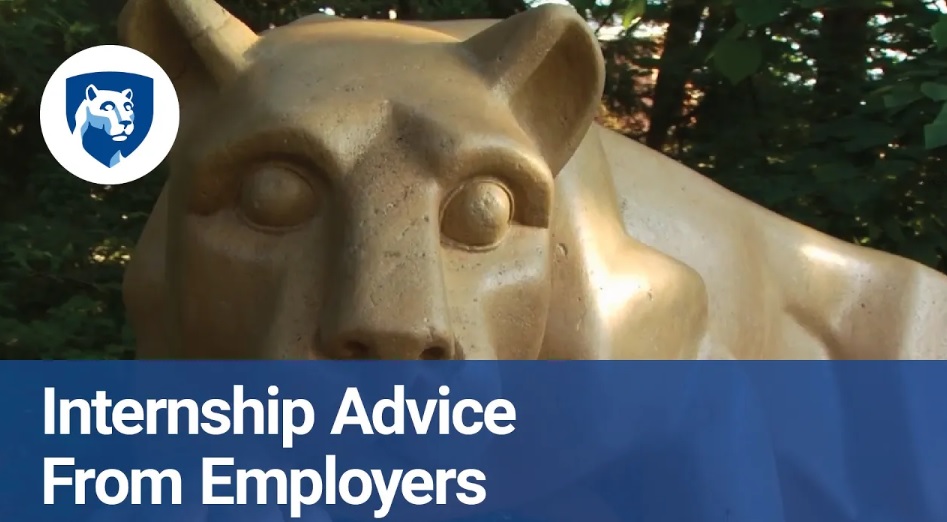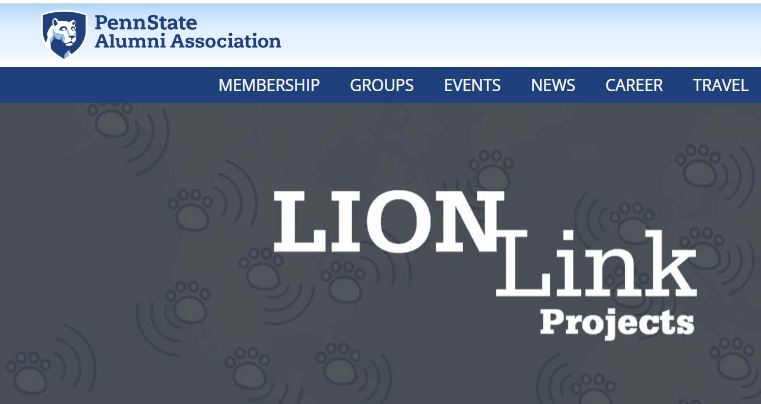
This post features the story of a Penn State World Campus student who wished to remain anonymous for privacy reasons. They obtained support and assistance from both the World Campus career services and disability services teams — and said this was critical to their success as a student and employee. They shared their story in the hopes of educating others about the typical experiences of those with disabilities, the challenges they face, and the support resources available to them.
For many students who need disability-related support or accommodations, the team approach is key to helping them succeed and achieve their goals. As the story of this Penn State World Campus student illustrates, it often involves a coordinated effort among several people or teams that, in this case, included Career Services and disability resources.
Extra challenges of invisible disabilities
The student pointed out that many conditions requiring accommodations (such as epilepsy, diabetes, arthritis, and anxiety) may not be immediately evident to others. Those with “invisible” disabilities often encounter additional challenges because others may not realize they need support or assistance, or may judge them unfairly without knowing their circumstances. “Just because people can’t see it, doesn’t mean it isn’t there,” the student said. “But that can make it very difficult to navigate.”
Recognize your own power
It is important for those who have any type of challenges or limitations to realize that they can and should take an active role in ensuring their needs are met to the greatest extent possible. “As a Penn State World Campus student, I was able to make my own accommodations. But as I moved into working, I was extremely anxious because I knew I would need accommodations in the workplace, and I was afraid I would have to explain everything, especially because the disability is invisible.”
The student attended sessions with career services staff members to prepare to advocate for accommodations that they would need in the workplace.
Customize your situation for your specific needs
The student said each person must identify his or her own individual needs, and work with the services and resources available to tailor accommodations in a way that is best for that person. “It’s important to identify what works for you and where your supports are.” Often, the best approach is a comprehensive plan that incorporates a variety of resources and services. “There is a solution for every piece.” The career services team educated the student about such tools as the Job Accommodation Network, which helps identify potential accommodations.
Keep in mind that support often goes beyond the formal/official resources. “It can also include those in the workplace whom you can identify as supports and whom you feel comfortable talking to.”
The student said that working with career services helped them learn whether they should disclose their disability — and when. “It was empowering to learn that I did not need to disclose to co-workers or peers.”
A helpful guide through the process
The career services team also guided the student about how best to navigate processes and departments, both at Penn State and in their employer’s organization. “For me, it was critical to receiving accommodations from my first day on the job. I’m so glad that I went to ADA and informed my supervisor of the situation from the start, because when bad days happened, there was understanding that these things occur, rather than negative judgment. I want to emphasize the importance of setting yourself up for success from the start by getting the accommodations you need.”
For this student, receiving the accommodations and support they needed made a huge difference in their ability to succeed. They said this made their life easier — physically and mentally. “It is very relieving to my anxiety to know that I can call the ADA official to talk about things related to my disability whenever I need to.”
They added that students with disabilities, as well as those people who support them, must remember that their needs may evolve as their circumstances change. That is why students must maintain an ongoing relationship with offices that provide relevant services. “This is not a static thing where you go to ADA, receive accommodations, and are done. Things change over time, and new needs/situations arise.”
Some people may find it intimidating to seek out services or request accommodations, but the student urged others to work up the courage — because it’s usually worth the effort. “Don’t let fear get the best of you when it comes to asking for accommodations. I took a chance, and now I have a great job, work with great people, and am able to do my best work, and that is all I ever wanted. I am just as capable as everyone else; I just need a few adjustments.”
They noted that students can still maintain their privacy to a great extent even while receiving disability services or accommodations. “Remember that you don’t need to tell anyone what the cause of your disability is, so you have the power. But I urge you not to be silent when you need accommodations, no matter how scary it may seem.”
Penn State World Campus students who need help with any type of work-related issue are encouraged to reach out to Career Services.



